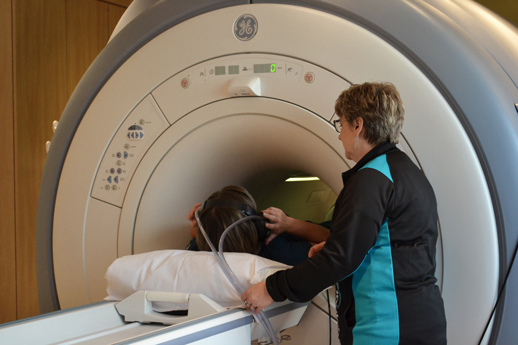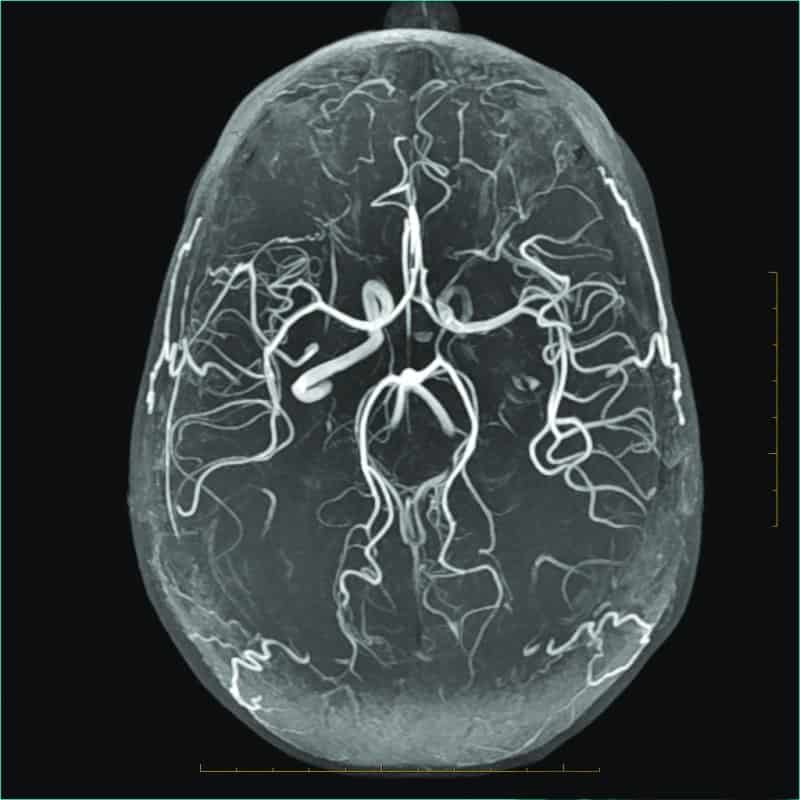MR Angiography (MRA)
MR angiography (MRA) uses powerful radio frequencies, magnetic fields, and a computer to generate exceptionally detailed images of blood vessels when looking for abnormalities such as aneurysms or malformations located in the Circle of Willis. MR angiography can be used to examine different parts of the body, such as the brain, neck (carotids), abdomen, and pelvis. MR angiography can also be used to image blood vessels in the brain. This exam is called intracranial MRA.
Intracranial Magnetic Resonance Angiogram (MRA)
This exam uses MR angiography to examine intracranial vasculature when looking for different manifestations of vascular disease, malformations, occlusions, or small aneurysms. Most intracranial abnormalities such as aneurysms are located in the Circle of Willis – a circulatory anastomosis that supplies blood to the brain and surrounding structures. Therefore, this exam is occasionally referred to as the Circle of Willis imaging exam. Intracranial MRA has quickly become one of the more reliable non-invasive imaging options to detect abnormalities such as aneurysms in the brain and cranium. Please note that any form of MR angiography performed outside of the hospital is a private service and will not be reimbursed by Alberta Health.
Cost
Alberta Health Services does not cover private MRI services outside of the hospital. The cost of MR angiography is $950 with contrast.
The need for contrast is determined by the radiologist at the time of imaging if it is determined that it is required for a proper diagnosis. The need for contrast is also impacted by specific patient history.
Duration
An MR angiography typically lasts between 15-30 minutes.
Exam Preparation
Being prepared for your MRA exam helps us take the best possible images for diagnosis. Please visit our exam prep page for more instructions specific to MRA preparation.



